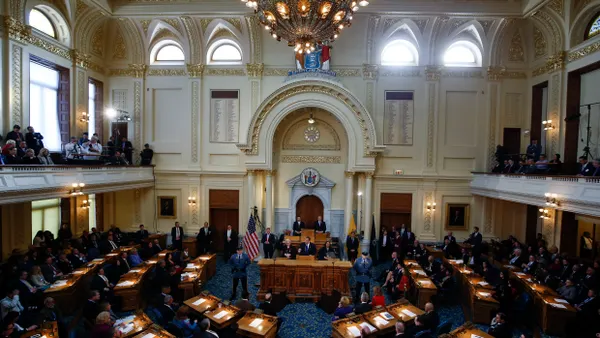The onus to collect and pay back deferred payroll taxes, under guidance the IRS has released on President Trump's executive order, falls on employers.
Trump signed the order last month after Congress failed to agree on extending COVD-19-related stimulus benefits. It directs participating employers not to withhold the 6.2% payroll tax that employees owe each pay period to cover their portion of Social Security taxes.
The absence of withholding gives employees a bigger paycheck, although they still must repay the deferred withholdings next year, unless Congress waives the liability.
The benefit applies to employees earning less than $4,000 every two weeks, or about $104,000 a year. It's in effect for paychecks issued between September 1 and the end of the year.
Effectiveness in doubt
Under the IRS guidance, liability for paying back the uncollected taxes could ultimately fall on employers; there's no language explaining how deferred taxes will be returned to the Treasury if an employee quits between now and the end of the year or otherwise can't pay the deferred taxes.
"You could give [the tax deferral] to the employee, but then a year from now you might be on the hook for the money," University of Chicago law professor Daniel Hemel told CNBC.
"Liability is going to stick to the employer like flies to flypaper," Marianna Dyson, a lawyer at Washington firm Covington & Burling, told The Wall Street Journal.
Low participation
Many employers may choose not to participate, which would dampen the stimulus impact.
"Many [employers could] decline putting the extra money in workers' paychecks — blunting any potential economic or political boost Trump had hoped to reap," an Accounting Today/Bloomberg News analysis said.
The last-minute revamping of systems to administer the change could also deter participation.
"The programming changes are substantial in scope," the National Payroll Reporting Consortium said in an August 20 statement.
The deferral is also not a clear win for employees, who could face double withholdings when taxes must be repaid early next year.
"It's not clear employees will want to take it, even if they qualify." Pete Isberg, vice president of payroll processing company ADP, told the Washington Post.
Notwithstanding the concern over double withholding next year, the Administration is planning to implement a required tax deferral for about 1.3 million federal agency employees, the Washington Post reported.
The American Federation of Government Employees has denounced the move. “Workers will have to pay double their regular payroll tax rate during the first four months of 2021, and if they cannot do so, they will have to pay interest and penalties on amounts still owed if they’re not paid back by May 1, 2021,” Everett Kelley, the organization's president, said.
Rep. Don Beyer (D-VA), whose district includes many federal employees, also took issue with the move. “Their proposed payroll tax deferral would not really put money in workers’ pockets," he said in a statement. "It would simply set up the members of the federal workforce who can least afford it for a big tax bill that many will not expect.”











